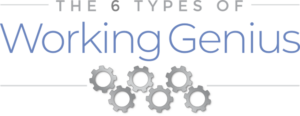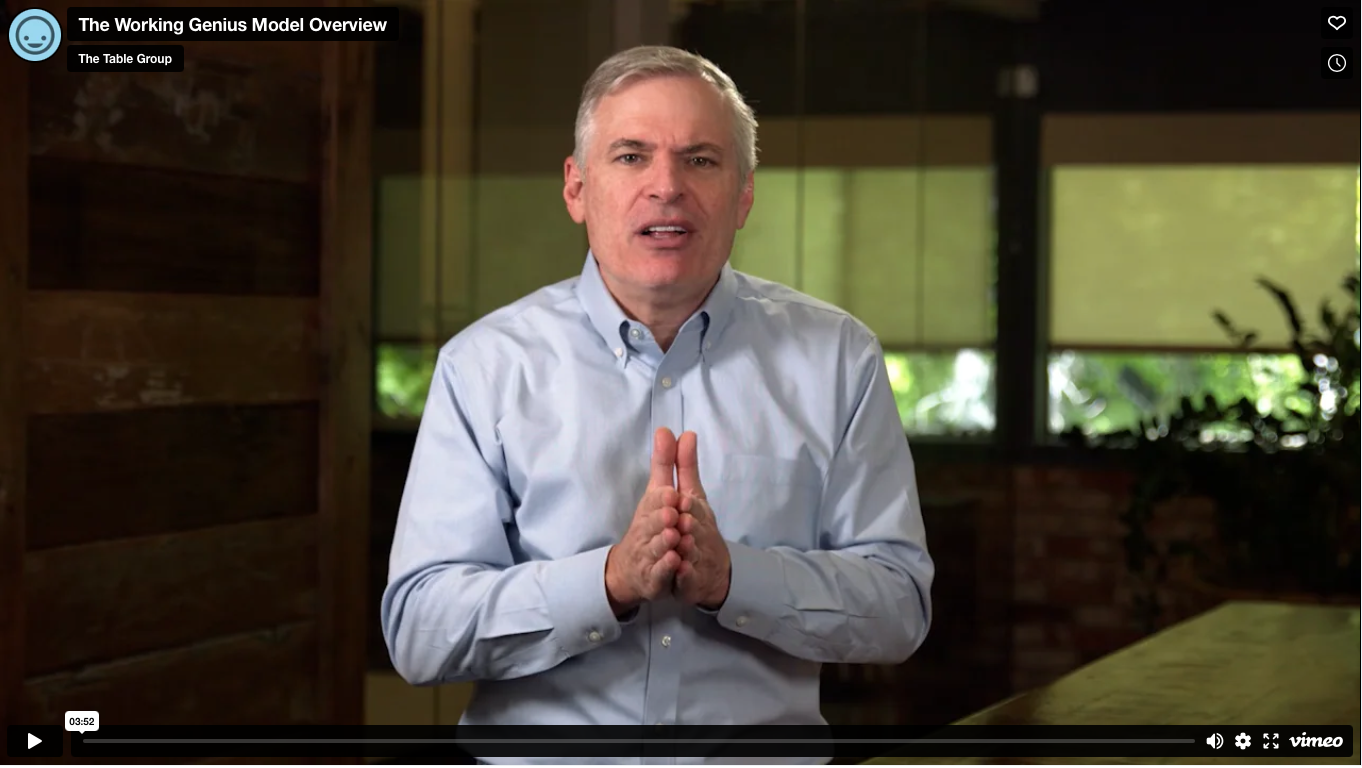The 6 Types of Working Genius
Accendo coaches are certified to facilitate The 6 Types of Working Genius workshop and administer the Working Genius assessment.
What is the Working Genius?
The Working Genius is Patrick Lencioni’s newest teamwork model that helps people understand how they can contribute to work most effectively. Lencioni is known for his best-selling business books on the topics of teamwork, leadership and culture (including The Five Dysfunctions of a Team, The Advantage, and The Ideal Team Player). His new tool can help individuals, leaders and teams better leverage one another’s strengths and understand how to be both productive and fulfilled at work. It has helped hundreds of thousands of individuals and teams discover their gifts and transform their work. Perhaps it can help you and your team too?
Check out this short video where Patrick explains the Working Genius Model.
Our insightful and fun half-day (2 to 4 hour) workshop is designed for teams that work directly or indirectly together to achieve goals. It is perfect for leadership team offsites! The process starts with each team member taking The Six Working Genius Assessment to discover their individual Working Genius’, Working Competencies, and Working Frustrations. The Assessment, given as pre-work, takes less than 15 minutes to complete. During the workshop the “Team Map” is used to easily display where the team is strong and weak in each of the six stages of work, resulting in a powerful discussion about how to maximize productivity and engagement.
Why is this important to you and your team?
A team missing or underrepresented in:
- WONDER: May fail to identify serious problems or take advantage of major opportunities.
- INVENTION: Could find itself revisiting the same problems again and again, and feel frustrated that little progress is being made.
- DISCERNMENT: Will often find itself trying to implement ideas or solutions that turn out to be inadequate or ineffective.
- GALVANIZING: May fail to act on ideas or initiatives that seemed promising, and may experience low morale.
- ENABLEMENT: Could experience a lack of camaraderie, leaving programs and projects to wilt or wither.
- TENACITY: May fail to complete projects according to desired standards or to complete them at all.


